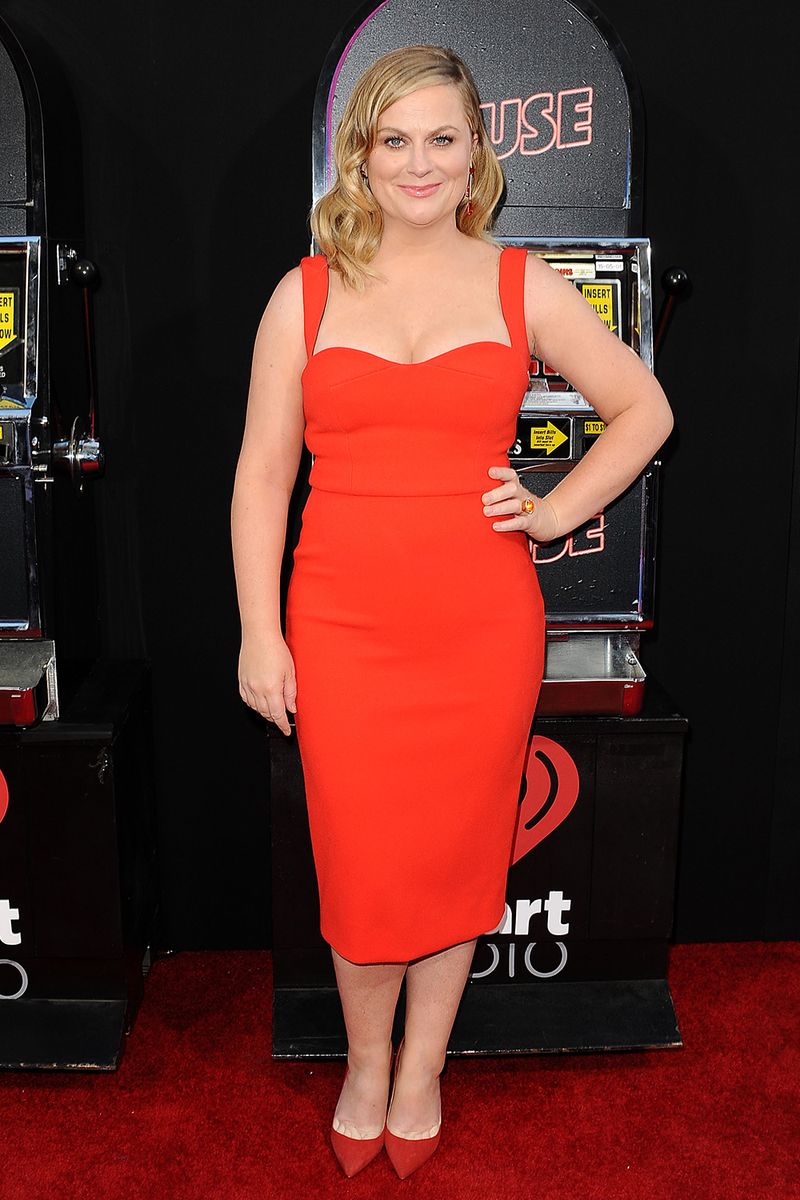

I loved your character who moved across the way very early on. Then the added layer, of course, of feeling that sense of otherness. The politics of middle school, it's just stunning.
#CECILY STRONG WEIGHT GAIN 2017 HOW TO#
One, the sleepover incident and having to lie her way out of that because she didn't want to be excluded from something else and not knowing what to do and how to not be left out without hurting someone else. This is so perfectly middle school, the way you captured some of these things. Then even how her peers, how her best friend almost wanted to exploit it for his own gain and how she felt. I also couldn't believe it when Lekha - I don't want to give anything away by describing what the incident was. I can't believe you had to endure that in your school environment and all the rest. I think the things that you feel are your most insecure about end up being - anyway, I think you know what I'm trying to say. I was just giving my daughter a Function of Beauty new product for her curls. It looks like everybody I know's hair, curly, wavy hair. By the way, I'm from the Jewish background. I hope it empowers them to find their voice. I hope that this book inspires and empowers kids everywhere to know that their story matters. Unlike me, Lekha finds her voice a lot earlier.

It wasn't seen as something that you would get made fun of for. I didn't find my voice until I went to college at the University of Michigan. Lekha finds her voice while she's in middle school. I didn't take my hair out, I didn't wear my curls out until I was thirty-eight, like a year and a half ago. I used to tie my hair back in a bun because people would touch it and people would make fun of it. I was like, that looks exactly like me on the cover. There's this picture I put up on Instagram that's me. When I first saw the cover by Abigail Dela Cruz and designer Laura Lyn DiSena, I was so floored. A lot of those incidents that are in the book are straight from my life. Someone wrote "Put a comb in that rat's nest" in Sharpie on my locker. People would walk by and touch my hair, tap it as they walked by. In my town, that also was not the beauty standard because very few, if any, people had hair like mine. Even in the Desi community, which is a South Asian diaspora, there's really a preference towards silky, wavy hair. I have the same hair as Lekha, really big, thick, curly hair. There were daily incidents of microaggressions and othering. I wasn’t the only South Asian America kid in town, but it was not a diverse town at all. Like Lekha, I grew up in a small town in Michigan.

When a racist incident rocks their small town, Lekha must choose whether to continue to remain silent or find her voice and speak out against hate. Then there's school Lekha who pins her hair over her bindi birthmark and avoids confrontation at all costs, especially when it comes to being teased for her Indian culture. There's home Lekha who loves watching Bollywood movies and eating Indian food. Lekha feels like she has two versions of herself.

Supriya: American as Paneer Pie is the story of Lekha who is the only Indian American kid in a small town in Michigan. Can you tell everybody what American as Paneer Pie is about? Then tell me a little more about the inspiration behind it. You said in a note to me that this is your most personal book yet. Zibby: American as Paneer Pie, I feel like you’ve written so many books at this point, and movies. Supriya Kelkar: Thank you so much for having me. Thanks so much for coming on "Moms Don't Have Time to Read Books." Supriya's books include Ahimsa The Many Colors of Harpreet Singh American as Paneer Pie, which just came out and we're going to talk about that Strong as Fire, Fierce as Flame Bindu's Bindis and That Thing About Bollywood. She was an associate producer on the Hollywood feature Broken Horses. She's a screenwriter who has worked on the writing teams for several Hindi films. Zibby Owens: Supriya Kelkar is the winner of the New Visions Award for her middle grade novel Ahimsa.


 0 kommentar(er)
0 kommentar(er)
